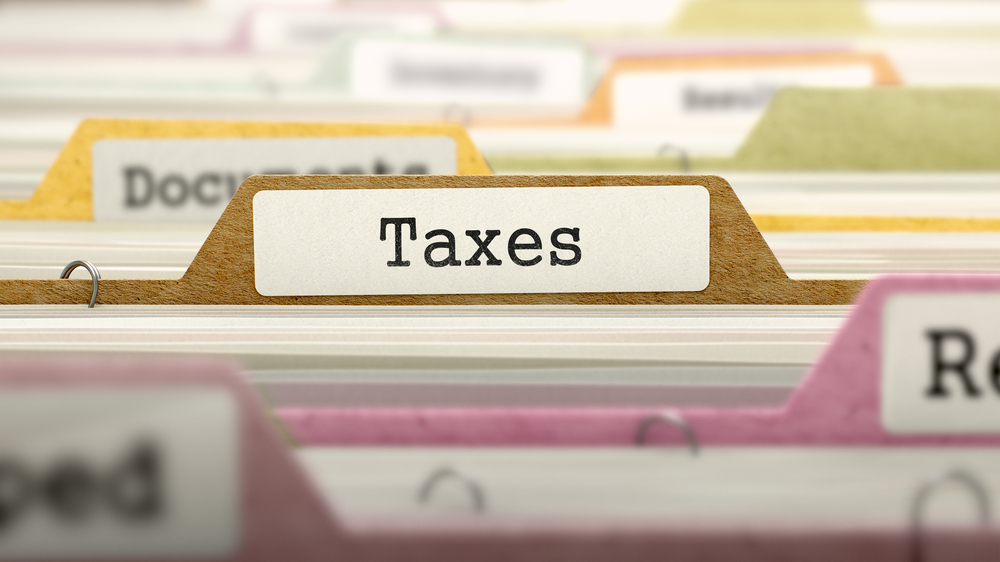End-Of-Year Tax Tips For Businesses
As the year draws to a close, businesses in all industries are navigating the vibrant hustle and bustle of the holiday shopping season. Owners and...

Properly preparing for the busy tax season is critical to running a successful small business. By taking the time to engage in tax preparation and planning, you can maximize your tax benefits while staying compliant with all relevant regulations. Plus, being prepared can save time and, in some cases, save money.
But we don't need to remind you that getting your tax paperwork in order is an involved process. So, what can you do to simplify your taxes and have an efficient, stress-free tax season? Keep reading this Huddle Business Capital blog article to find out. It features several business tax preparation tips that can benefit you and your company, whether you file your taxes or hire an accountant.
Maintaining accurate bookkeeping throughout the year is essential for effective tax planning and preparation. Keeping track of income, expenses, and other financial records will make the documents needed to file your taxes readily available. This saves time and helps avoid a last-minute rush, which can result in unintended errors. Inaccurate or incomplete financial records on your business tax return can lead to penalties or tax audits.
Accounting software can simplify all aspects of your bookkeeping. It allows you to streamline tasks such as recording transactions, generating reports, and managing cash flow. With the right software in place, you can automate repetitive tasks and reduce the risk of errors that may occur with manual data entry. And when tax time nears, you can produce financial reports quickly.
Maximizing profits and minimizing expenses are the primary objectives of any business owner. However, one often overlooked avenue for reducing costs and boosting the bottom line is through business tax deductions and credits. They can significantly reduce your business's taxable income and provide substantial benefits.
A seemingly endless array of business tax deductions is available, and certain types of business equipment and vehicles qualify for the Section 179 tax deduction. Discussing your potential tax deductions with an accountant or tax professional is recommended, as every business's situation is unique, and the list of IRS deductions is subject to change.
As you know, many obvious business expenses are deemed "ordinary and necessary" by the Internal Revenue Service (IRS), such as employee payroll, office rent, software, office equipment, and business insurance. Other types of expenses might be deductible, too. These include small employer health insurance, charitable contributions, travel expenses, marketing expenses, legal fees, and business use of a car. And if you operate your small business from home, you might be able to claim a home office deduction.
We want to remind you that every business's situation is different, and not all expenses are eligible for a tax deduction. Talk to your accountant and ask them which deductions you can claim. In doing so, you can keep records and receipts throughout the year to back them up. This takes time and effort, but it can be a big help when tax time comes around.
Business tax forms serve as a means to report your business's financial information and fulfill your tax obligations. They provide a comprehensive overview of your business's income, expenses, deductions, and other relevant financial details. There are many types of tax forms, some of which differ based on the business's legal structure.
For example, a sole proprietorship must file a Schedule C, and a corporation must file a Form 1120. Talk to your accountant to find out what tax forms you must complete and which information and paperwork you need to accompany your tax return. Finally, ensure you know your tax filing deadline, which will depend on your business's legal structure. Some business structures have a tax filing deadline of March 15, and others must file by April 15.
This Huddle Business Capital blog article is purely educational and contains general information and opinions; it is not intended to provide advice or recommendations of any kind.

As the year draws to a close, businesses in all industries are navigating the vibrant hustle and bustle of the holiday shopping season. Owners and...

The holiday season is often the most wonderful time of the year—for small businesses. It's a time when savvy business owners do more than put up...

The start of the New Year is a fantastic time for business owners to begin planning for the business tax season. Taking steps now can help ensure a...